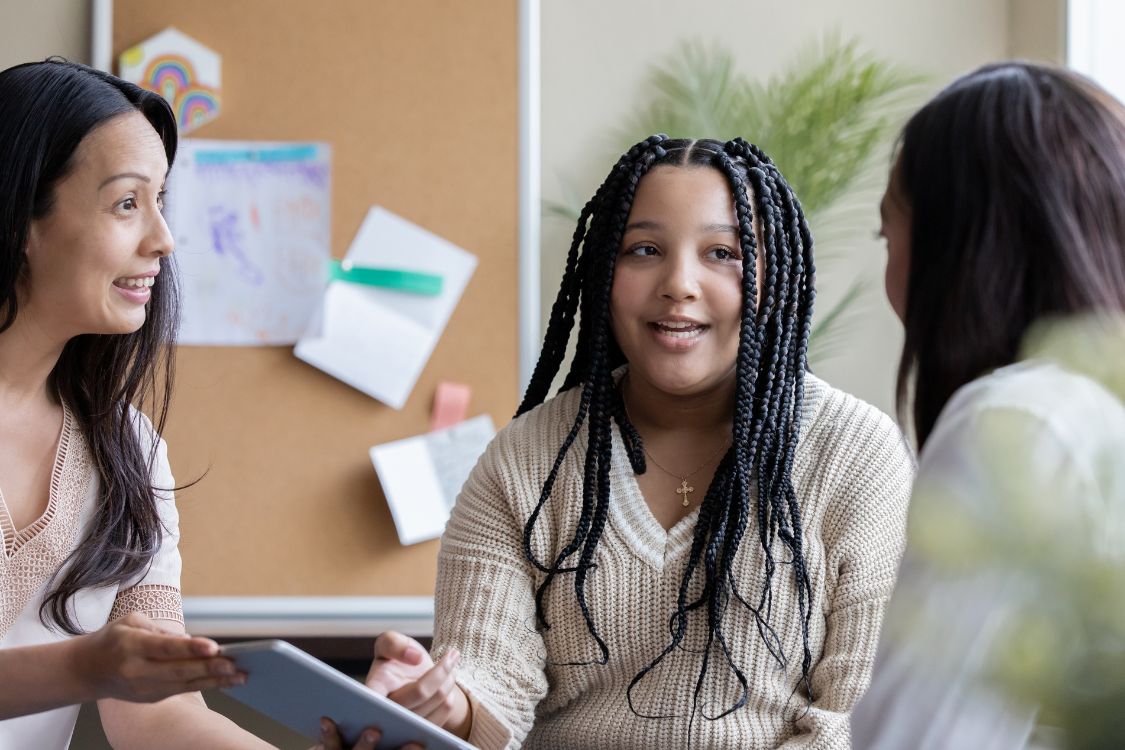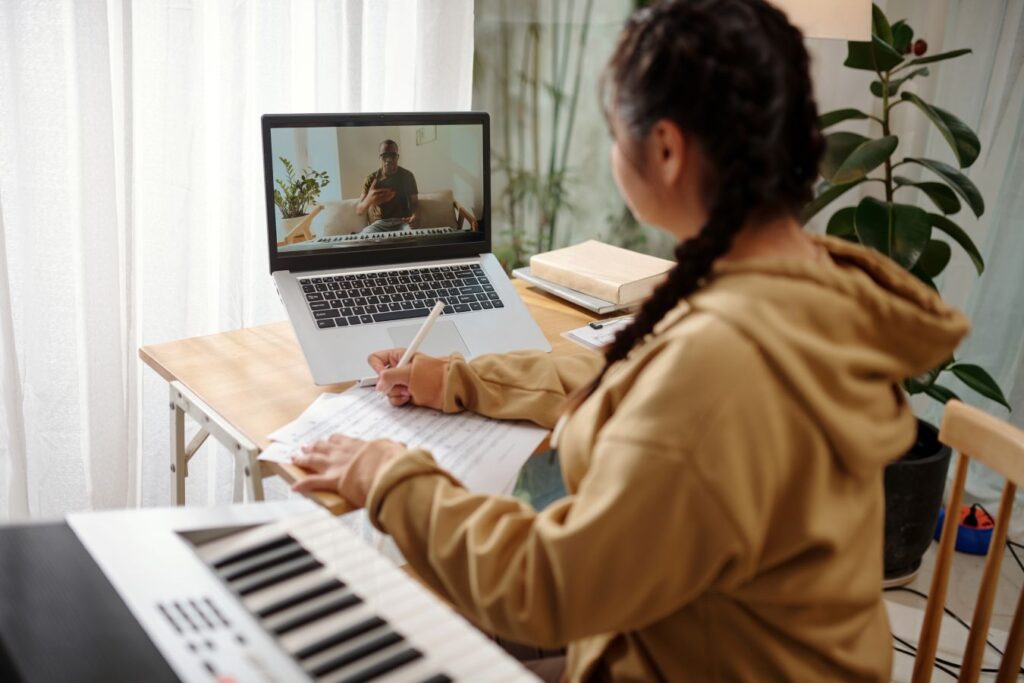Running a music school is more than scales and solos—it’s about sparking joy, creating belonging, and helping students discover what they’re capable of.
But let’s be real: keeping students engaged year after year? That can feel like a mountain to climb, given the numerous scenarios that arise in life. Especially those far outside your circle of influence and control!
Here’s the good news: When you shift your focus from simply “retaining students” to building genuine relationships, you can create a community where students and families feel deeply connected and excited to stick around.
Will it be perfect? No.
Can it be better? Absolutely.
Think about this: most schools invest around $300 to acquire a new student. After the breakeven period, every additional month a student stays represents pure profit. By reducing churn, you’re not just keeping seats filled—you’re building a more sustainable and profitable future for your school. It will generally always cost more to bring in new students than to retain existing ones.
Lets review some practical strategies to keep your students coming back, not because they have to, but because they want to.
PART 1: Building Your Music School’s Core
It’s Not About Music Lessons—It’s About Transforming Lives

Let’s start with a powerful shift in perspective: you’re not just teaching music lessons; you’re transforming lives.
Yes, scales and sheet music are important, but the deeper value you provide is helping your students grow into confident, disciplined, and creative individuals. We spoke about this in our marketing fundamentals article, where we talked about the importance of storytelling and messaging in marketing.
When parents see your commitment to their child’s growth—not just as musicians but as people—they’re more likely to stay. Celebrate moments that show this growth, whether it’s a shy student’s first recital or a breakthrough on a challenging piece.
Creating an inclusive, welcoming environment can also boost retention. These milestones remind families that your school offers so much more than music lessons—it offers transformation.
Here’s a thought exercise:
Pick one student who has been with your school for several years. Reflect on their growth, both musically and personally. How have you communicated that growth to their parents? Use those insights to improve how you share progress with other families.
Example: “When Sarah first joined our school, she was terrified of performing. Fast forward two years, and she’s leading her group recital with confidence. Stories like hers are why we do what we do.”
Your Action Plan:
- Make your school’s purpose clear to your staff. Explain that music lessons are about more than just scales and chords—they’re about helping kids grow.
- Share these values with parents, too. Use emails, social media, or even end-of-year recitals to highlight stories of how your lessons are helping them.
Your music school reflects your vision and values. When you stay true to your purpose—everything else falls into place.
Why Relationships Matter More Than Tactics

At the heart of student retention is one simple truth: people stay where they feel seen, valued, and supported.
Retention can often feel transactional—how do we get students to commit for one more year?
When we shift the focus to relationships, it becomes transformational. The question changes to, how are we doing with our relationships?
For example, teachers can spend a few minutes after each lesson talking with parents. It doesn’t need to be formal or scripted; they’re about sharing wins, setting expectations, and building trust (which is why, when a great teacher leaves, it often results in a noticeable drop in the student body tied to them—we’ll explore this soon!).
Ask yourself:
- Are my teachers trained to build meaningful relationships with students and parents?
- How can we make relationship-building part of our routine?
When parents feel that their child is growing—not just as a musician but as a person—they’re more likely to stay committed to the journey.
Focus on Teachers: The Heart of Retention
A great teacher will have higher retention rates than a poor one.
Are we waiting for the perfect teacher to walk through the door, or are we putting together materials, initiatives and building a culture of ‘greatness’?
In other words, you have influence over teacher development and should use it!
Invest in your teachers! Empower them with regular training, opportunities for feedback, and recognition for their hard work.

Invest in Teacher Training
Not every teacher starts with a natural ability to build relationships, but it’s a skill that can be developed. Provide training to help teachers connect with students of all ages. Working with a four-year-old requires a very different approach than engaging a 14-year-old.
Help Teachers Manage Their Workload
A teacher may have a small number of students and can give each one personalized attention. Another one managing 40+ students, however, might struggle to maintain the same depth of connection. Consider capping class sizes or providing tools like lesson planning templates to lessen the mental load on teachers.
Delegate
Teachers should be able to focus on what they do best, and not have to switch hats into areas that the admin should be handling (like payments or scheduling).
If hiring a dedicated family coordinator isn’t possible, consider automating parts of the process:
1. Use software to track lesson progress and send automated updates to parents.
2. Set up email campaigns to remind parents about re-enrollment deadlines.
3. Assign one admin staff member to act as the “parent liaison.
Motivated, supported teachers naturally create stronger connections with students, which leads to better retention. When your teachers are thriving, your students will too!
It’s impossible to completely eliminate teacher turnover. One trend we’ve noticed post-pandemic is that many teachers who paused gigging are now returning to the road.
While this can be discussed during the interview process, sometimes circumstances lead people to seek short-term roles, making turnover unavoidable at times. It’s not about the maybe or what if. Make this part of your culture.
Part 2: Building Connections That Last
Engage Parents, They Hold the Key (and the Wallet!)

Let’s not forget the decision-makers—parents. They’re the ones paying for lessons and deciding whether to continue. Regular, meaningful communication with parents is important.
Here are a few ideas to strengthen those relationships:
1. Frequent Updates: “For example, send a monthly ‘Spotlight Saturday’ email with quick updates on individual or group achievements.”
2. Invite Feedback: “A survey could include questions like, ‘What’s your child’s favorite part of lessons?’ or, ‘What do you wish we offered?’”
3. Celebrate Milestones: Did their child master a difficult piece or perform at a recital? Make sure parents know and feel included in the celebration.
Parents are also your biggest allies in student success, but they might not know how to help. You can get them involved by creating a video series showing parents how to support practice sessions at home. Or, build a ‘parent session’ into your take home materials, where their child must ‘teach’ them.
Another one is also offering parent-child beginner classes that let families learn side by side. When parents see themselves as part of their child’s musical journey, they’re more likely to stick with you.
While parents are a big piece of the puzzle, don’t forget about onboarding. That first impression makes all the difference.
Onboard New Families Thoughtfully
New students are more likely to drop out within the first year, which makes it a critical period in the relationship. Both the kids and parents are evaluating if this is for them or their child, and if the value is there.
Make sure you have a well developed onboarding process that helps everyone settle in. Proper onboarding will:
1. Build excitement
2. Define what ‘success’ looks like
3. Set expectations for parents
4. Leave all parties feeling great about the first lesson!
Ideas for how this can be done:
- Personalized new student welcome kits
- “Buddy” pairing the student / parents with others already part of the community to kickstart friendships and connections
- A new student ‘photo’ day (also great for building your media library and social posts!)
- Welcome mention in weekly or monthly email
- Put new students up on a monitor screen in the lobby
- Folder / packets with all applicable paperwork and materials for parents
- Introduction with the teacher
- Orientation session
Maintain Momentum Over Breaks

School holidays can be a retention black hole. Avoid this by offering seasonal workshops, themed camps, or even virtual “mini-lessons:”
- Spring: Encourage fall re-enrollment by showcasing student progress.
- Summer: Host fun programs like camps to keep students engaged.
- Fall & Winter: Spotlight achievements with recitals or reports to show the value you bring.
Think of retention as a year-long process, not a one-time effort. By aligning your efforts with the rhythm of the year, you’ll keep families connected and committed!
Our article on marketing to inactive music students provides some great tips and strategies on how this can be done.
Listen Through Surveys
Ever feel like your voice isn’t heard? Your students and their families might feel the same. Sending out surveys a few times a year lets them share what’s working, what’s not, and what they wish for.
We’ve run net promoter score campaigns and discovered all sorts of small information, from frustrations to teachers being habitually late, to parents disliking a method book.
Depending on the score and feedback, you can prevent a frustrating situation for a parent or student from turning into a drop.
Make Learning Personal and Exciting
Imagine showing up to class and being handed a massive textbook. Yikes, flashbacks to high school, anyone?
Your students need bite-sized, personalized goals that keep them motivated and excited.
Kids (and let’s be honest, adults too) also love a good game. Adding friendly competitions, milestone badges, or practice challenges can turn mundane routines into exciting activities!
There are a number of plug-and-play programs that do this.
Offer Unique Experiences
What sets your school apart? Maybe it’s recording sessions where students create their own demo tracks. Or perhaps it’s a guest workshop with a touring musician. Not only did it excite the students, but parents will also be thrilled to share the tracks with family and friends.
Whatever it is, offer something your competitors don’t.
Create Membership Perks

Think of ways to make your school feel exclusive. Maybe members get free entry to monthly jam sessions, discounts on gear, or early access to special events.
Another strategy is giving students access to valuable resources—like an online lesson archive—that they lose if they leave.
Build a School Story That Parents Want to Be Part Of
While tracking retention rates is important, numbers don’t tell the whole story. What really resonates with families is the personal impact you’re making.
Your school’s story isn’t just a marketing tool—it’s the backbone of your culture. A clear vision attracts like-minded families and keeps them engaged.
Take time to collect and share stories—like how music helped a student overcome stage fright or how a group class built lifelong friendships. These stories give human touch to your school and remind families why they chose you in the first place.
Create Milestones That Matter
One reason students leave is that lessons can feel like an endless cycle with no clear progress.
Here’s an example: Some schools send annual progress updates. These milestones give kids a sense of accomplishment and can give them and their parents clear goals to work toward. And here’s the genius part: these milestones also naturally lead into re-enrollment conversations!
Try This in Your School:
1. Design a curriculum with built-in milestones, such as recitals, group performances, or certificate achievements.
2. Progress reports are more than checklists—they’re stories. Share how tackling a tricky piece boosted a student’s creativity or confidence.
3. Celebrate milestones with emails, photos, or even quick video messages.
What truly resonates is the teacher’s genuine investment in each student’s growth—mapping out where they’ll be in six months, a year, and beyond. Parents who see that their child’s teacher has a long-term vision for their musical journey are far more likely to re-enroll.
Create a Culture of Community

People often join for the lessons but stay for the friendships. A connected school community improves retention. Take cues from the studio that added a foosball table to their waiting area—not just for fun but to spark conversations among students and parents.
Small touches like a bulletin board for student achievements or social events like recital after-parties create bonds beyond the classroom. These remind families that your school isn’t just a place to learn music—it’s a place to belong.
Adapt to the Times
If you’ve ever caught yourself saying, “Back in my day…” it’s time for a mindset reset. Students today learn differently, and expectations have shifted.
Whether it’s offering online lessons, using social media for student shoutouts, or gamification, staying relevant shows you’re committed to meeting your students where they are.
Music Student Retention is a Worthy Long-Term Investment
Improving student retention isn’t about implementing a list of strategies—it’s about creating a music school experience that families can’t imagine leaving. When you focus on building genuine connections, celebrating progress, and creating a sense of community, retention becomes a natural result.
It’s all about relationships—students stay because they feel valued, parents stay because they see their children thriving, and teachers stay because they’re supported in providing meaningful lessons. Retention is a long game, but every step you take today builds a stronger, more connected school tomorrow.
Let’s keep the conversation going—I’d love to hear what’s working for your school! Stay tuned for more ways to create a thriving music school.

Tune Up Your Music School’s Reach and Enroll More Students.
Book a Free ConsultationMeet Joshue
Joshua is a Digital Marketing Specialist with a passion for helping music schools thrive. She loves both the creative and analytical sides of marketing.
When away from the keyboard, she enjoys dancing and making memories with her favorite people.


